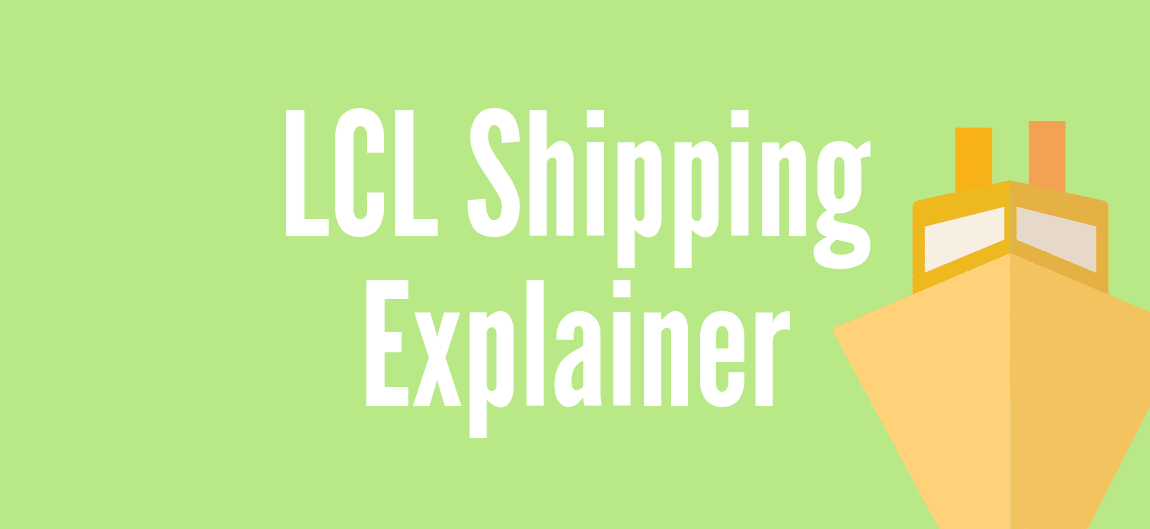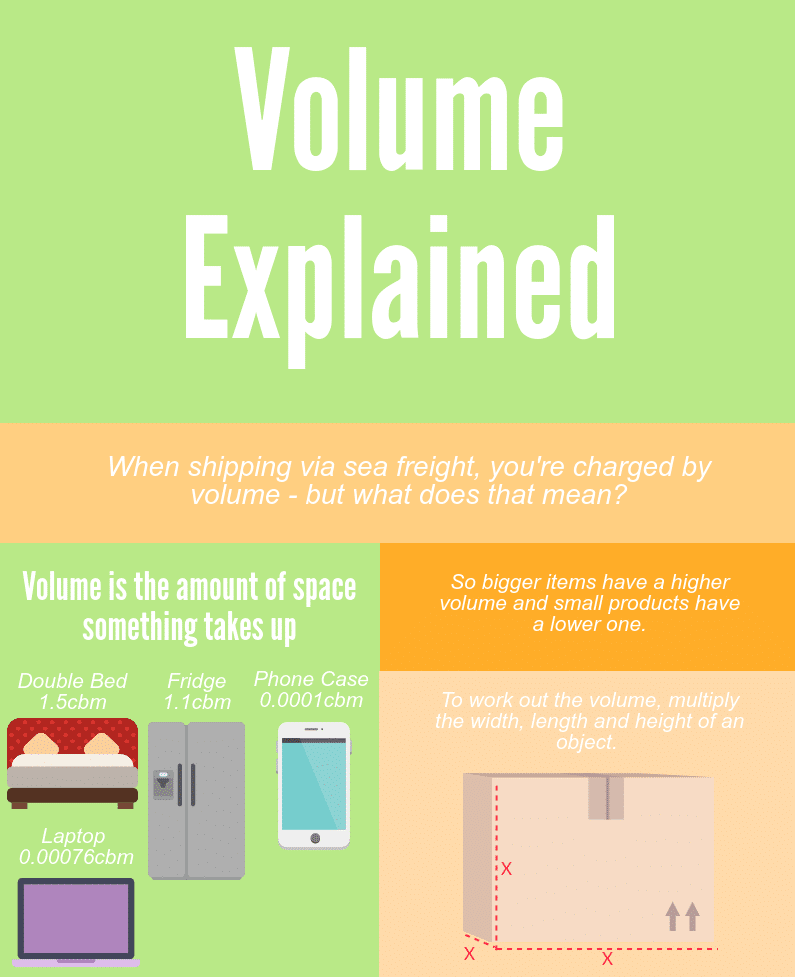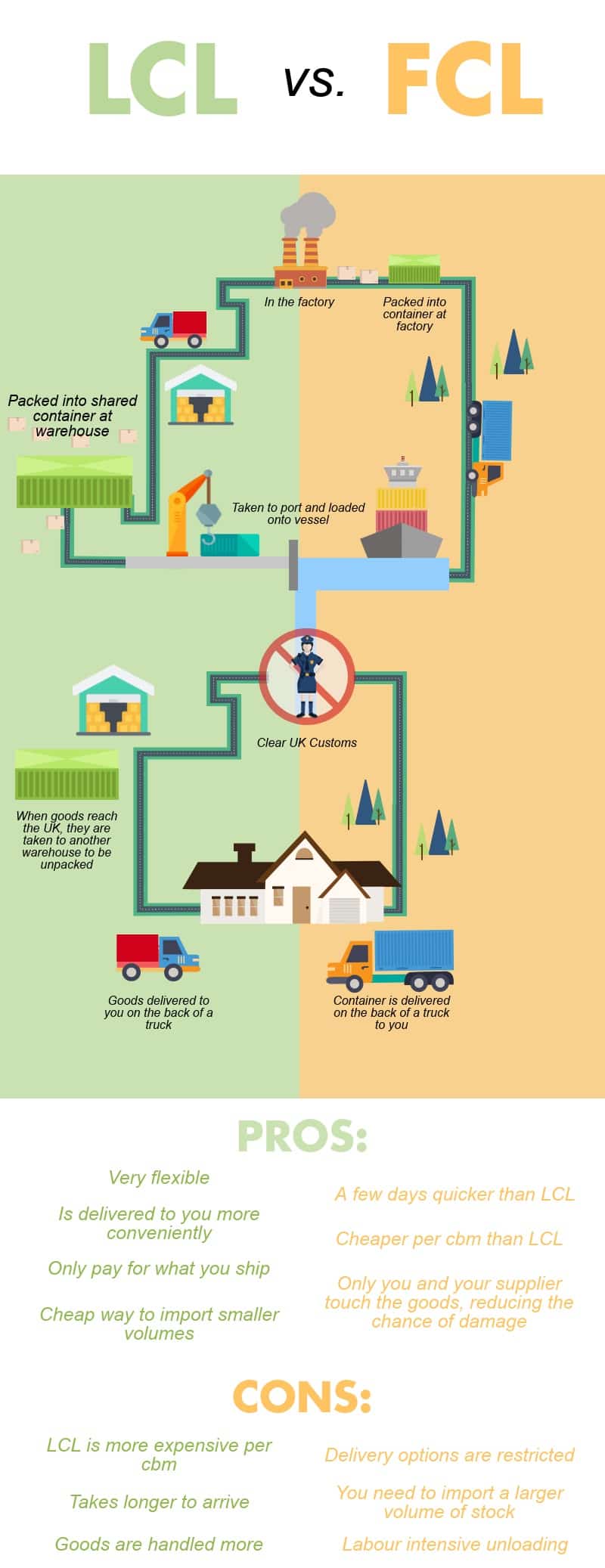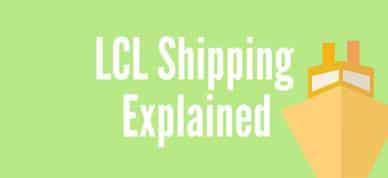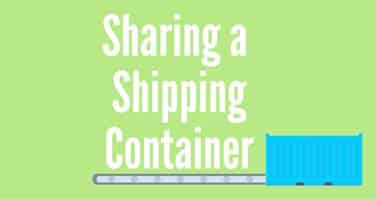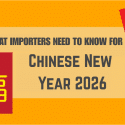-
What is Less Than Container Load Shipping?
Less Than Container Load shipping is when you ship goods via sea freight and they’re loaded into a shared container with other people’s goods for transit.
LCL (Less Than Container Load) shipping can be an easily cheaper alternative to FCL (Full Container Load) shipping. The essential difference is that instead of filling an entire container with your goods, you’re sharing a container with other importers. This mode of transport means that you don’t have to buy enough stock to fill an entire container load – and instead of paying for a whole container, you only pay for the space inside of the one you use. This is particularly helpful for smaller businesses, or first-time importers who are just testing the waters.
(By the way – we specialise in LCL shipping, so get in contact if you’re interested, or would like to know more information!)
-
When To Ship LCL
If you’re shipping a small number of goods, or products that don’t take up much space (low volume), chances are you’ll want less than container load shipping. A lot of startups won’t be buying enough stock to fill an entire container – especially if you’re shipping low-volume items such as phone cases.
That said, once you reach a certain volume (even if it isn’t enough to completely fill a container), it becomes more cost effective to ship via FCL. This is because FCL is charged as a flat rate that, while more expensive than LCL, is most cost effective per cbm of space within the container.
If you’re unsure about whether you’re going to need an FCL or LCL shipment, don’t worry about it too much – regardless of which one you’re going for, you’ll need a freight forwarder and when they’re helping to quote your shipment, they’ll tell you whether your goods should be LCL or FCL.
Save
-
How Is A Less Than Container Load Shipping Price Calculated?
LCL prices are calculated by the volume of space you need inside the container – however, it’s not quite as simple as it sounds. While you’d be correct in assuming that a higher volume would increase the price . . . it takes quite a large increase to change the price. You can often double your shipment volume before seeing any real difference!
The reason for this is the same reason that shipments below a certain volume aren’t cost-effective when shipping by sea freight – the minimum. Cargo ships are massive and the average Joe vessel can usually hold as many as 3,500 containers, with many vessels being able to transport more! This means that there’s a lot of space available, so it’s cheaper than other modes of transport . . . but the minimum space that you pay for the use of is 1cbm (100cm x 100cm x 100cm). So if you’re only shipping one small box of iPhone cases (say 20cm x 20cm x 20cm) you’d still be paying for 5x the volume of that.
We recommend shipments bigger than 0.5cbm and heavier than 100kg.
-
The Less Than Container Load Shipping Process
Below, we’ve explained how the entire process of LCL shipping works.- Our local overseas agent will contact your supplier
- They will decide, based on the readiness of the goods, which container ship they will catch
- The goods will be collected or delivered to a warehouse near/at the port of origin
- The warehouse will load them into a shared container with the cargo from other customers
- The container will be sealed and taken to the port
- It’s loaded onto the container ship which brings it to the UK
- In the UK the container is taken off the ship and moved to a local warehouse
- At the warehouse, your goods will be unpacked from the container
- We’ll declare them to UK customs (using the invoice for the goods, your EORI number (we can help if you don’t have one) and the commodity code(s) for your goods.
- We’ll contact you to arrange delivery the goods once cleared and released
- Delivery arrives outside your premises
- You unload your goods from the truck and then use/sell/enjoy them!
The below video shows how easy it is to use sea freight to import your cargo via sea freight from overseas even if you only need part of a shipping container…
Save
-
How does LCL Differ To FCL?
LCL (Less Than Container Load) is when your goods are packed into a shared container with other people’s goods too – whereas FCL (Full Container Load) shipments are when you rent all the space inside the container. While this is the main difference, there are actually a lost of other differences in the process of the two shipments.
Save
-
Less Than Container Load FAQ's
An LCL shipment (Less Than Container Load) ✔️ is when a consignment of goods are shipped via sea freight and loaded into a shared container with other consignments. This method of importing means that you don’t have to buy enough stock to fill an entire shipping container. By using an LCL method of importing you’ll only pay for the space that you use. This is particularly helpful for smaller businesses or first time importers who are just testing the waters.
Can I share a Shipping Container?
Sharing a shipping container is called LCL (Less Than Container Load) shipping. Sharing the container with other importers means sharing the cost. With LCL shipping you’ll only pay for the space that you use. Importers take advantage of shared container shipping from all major ports in Asia.
The decision on whether you need a full container when importing goods from overseas depends largely on the amount of space your goods take up. If they total more than about 20 cubic metres we’d say that you probably do need a full container. If your shipment totals less than about 20 cubic metres then it would probably be best to ship it in a shared container (LCL, Less Than Container Load).
-
Shippo
We hope you found our guide to Less Than Container Load shipping useful! Remember, if you are unsure of which type of shipping is right for you (LCL or FCL), please just contact us we’ll help you work it out! Alternatively, if you’re ready to go, just grab a quote!
As a first-time importer of goods into the UK, Shippo offered wonderful guidance and understanding through the process. They delivered our pallets from Shenzhen to our warehouse in Crediton without a glitch. Everything went smoothly, and as a matter of fact our warehouse mentioned that they have been in the business for a long time and were very impressed at how well the delivery was handled. I thank Phoebe and her team and I highly recommend them.Herman CastanedaOther Posts You May Find Useful
Riding Into The Year Of The Horse: Key Dates For Importers
0 commentsAre You Planning On Importing In January 2026? We know Christmas isn’t over yet but Chinese New Year is fast approaching with little time to
Solving Lactose Intolerance, One Shipment at a Time!
0 commentsWhen Ariane moved to London from Germany, she thought finding something as simple as Lactase supplements would be simple. Feeling frustrated, she realised she wouldn’t
Importing Success Stories – How Does it Work?
We want to understand the passion behind your business, whether that be for doggy bags or unique furniture! That’s why we’re offering £100 off your
